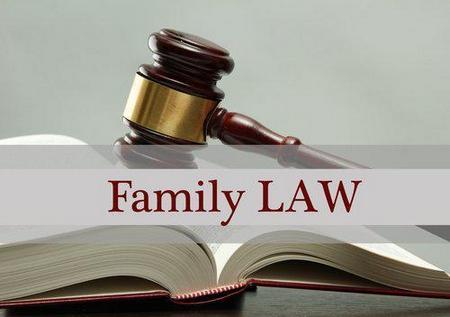Recent Blog Posts
Divorce and Money: Social Security Benefits after a Divorce
 At first glance, the rules to collecting Social Security from your spouse's retirement fund might seem straightforward. Requirements state that if you stay married for ten years, you will be entitled to a portion of those benefits. But do those years have to be consecutive? Or can you collect for partial years? What if your spouse dies? Can you collect benefits then? If so, how much and under what circumstances?
At first glance, the rules to collecting Social Security from your spouse's retirement fund might seem straightforward. Requirements state that if you stay married for ten years, you will be entitled to a portion of those benefits. But do those years have to be consecutive? Or can you collect for partial years? What if your spouse dies? Can you collect benefits then? If so, how much and under what circumstances?
If you are nearing retirement age and planning a divorce (or if your contribution to Social Security has been substantially lower than your spouse's over the last several years), you may wish to consider your retirement options, including how Social Security may or may not factor in. At the very least, this knowledge can assist you in developing a long-term financial plan before and during your divorce.
The Ten Year Rule
Big Cities, Dangerous Buildings
 The bustling metropolis of a big city can bring about many dangers, including those that come from walking the streets around apartment buildings and living inside those buildings. Aging structures and the sheer volumes of premises that need regular inspections are cause for concern.
The bustling metropolis of a big city can bring about many dangers, including those that come from walking the streets around apartment buildings and living inside those buildings. Aging structures and the sheer volumes of premises that need regular inspections are cause for concern.
Building code violations can occur more frequently than you think. The next time you step into an elevator, flick on a light switch, or stand out on a balcony, think twice about your safety as you have put faith in the assumption that the building is up to code and has been inspected fully on a regular basis.
Types of Violations
Premise liability exists when an individual is injured or a wrongful death occurs due to a circumstance present in a commercial or residential building. If there was a failure in safety standards that lead to an injury, the premise owner may be held accountable. Typical violations are most commonly seen in the form of the following:
Student Visas After School: Adjusting Status
 It is extremely common for a non-citizen to come into the United States on one type of visa, and then seek to adjust status to another. One of the most common visa types for this is the F-1, designed for students. Students find employment, get engaged, and experience other life events that necessitate a change of status.
It is extremely common for a non-citizen to come into the United States on one type of visa, and then seek to adjust status to another. One of the most common visa types for this is the F-1, designed for students. Students find employment, get engaged, and experience other life events that necessitate a change of status.
Can I Adjust Status in the U.S.?
Not everyone may adjust their status while remaining in the United States, though most can. People who hold certain entry permits must return to their home country before adjusting—for example, those on the visa waiver program, or those holding transit visas. J1 and M1 holders (foreign exchange visitors and vocational students, respectively) may adjust to certain other statuses, but not others.
F1 visa holders, and most other nonimmigrant visa holders, may adjust status while still in the United States, and they most often do so either via family-based immigration or with an employer’s assistance. Generally, if one was lawfully admitted to the country under an appropriate status, and that status is still valid, you may apply to adjust via an I-130 petition submitted by your citizen relative (a parent, spouse or adult child).
Is it Possible to Lose Citizenship?
 Depending on our backgrounds, we tend to think of U.S. citizenship either as something we worked hard to attain or as something to take for granted. Either way, we do not like to think that citizenship is something that can be lost, and yet it is. The circumstances do not occur routinely, but it is very possible that you may do or not do something that can make it inappropriate for you to continue to have U.S. citizenship.
Depending on our backgrounds, we tend to think of U.S. citizenship either as something we worked hard to attain or as something to take for granted. Either way, we do not like to think that citizenship is something that can be lost, and yet it is. The circumstances do not occur routinely, but it is very possible that you may do or not do something that can make it inappropriate for you to continue to have U.S. citizenship.
Constitutional Provisions
The Constitution, while not doing so explicitly, has been held to bar involuntarily stripping a U.S. citizen of that citizenship. Case law is solidly on the side of the individual, with the landmark case being Afroyim v. Rusk (1967), where the Supreme Court held that it was a Fourteenth Amendment violation to strip someone of their citizenship. Essentially, Afroyim held that the only way for a U.S. citizen to lose his or her citizenship is to engage in a behavior that either renounces citizenship, or can be reasonably believed to renounce it.
Gas Explosions: A Real Danger
 Gas grills and homes remain high risks for leaks and faulty mechanisms. Many factors can cause a fiery and fatal destruction. Moreover, victims of gas explosions can suffer catastrophic burn injuries and face a lifetime of healing and disfigurement.
Gas grills and homes remain high risks for leaks and faulty mechanisms. Many factors can cause a fiery and fatal destruction. Moreover, victims of gas explosions can suffer catastrophic burn injuries and face a lifetime of healing and disfigurement.
In 2014 there were over 700 gas pipeline incidents reported, which resulted in 18 fatalities, close to one hundred injuries, and caused property damage amounting to over $300 million dollars.
Not a Rare Occurrence
What seems like a significant but infrequent event, gas explosions actually happen more than one might think. Over the last few years, reports of significant explosions have often appeared in news headlines. Whether it be a residential explosion or one occurring in a commercial situation, or even in a public place, the consequences can be deadly and/or cause significant property damage.
Understanding the Changes to Parental Relocation Laws in Illinois
 With all the changes made to the Illinois Marriage and Dissolution of Marriage Act (IMDMA) in 2016, parents may be concerned as to how their lives and the lives of their children may be impacted. Rest assured in knowing that most amendments in Senate Bill 57 are meant to better define what is in the “best interest” of minor children and that the courts still want to provide reasonable liberties to parents. Revisions made to the Illinois parental relocation laws (laws that govern a parent’s right to relocate after divorce) serves as a prime example.
With all the changes made to the Illinois Marriage and Dissolution of Marriage Act (IMDMA) in 2016, parents may be concerned as to how their lives and the lives of their children may be impacted. Rest assured in knowing that most amendments in Senate Bill 57 are meant to better define what is in the “best interest” of minor children and that the courts still want to provide reasonable liberties to parents. Revisions made to the Illinois parental relocation laws (laws that govern a parent’s right to relocate after divorce) serves as a prime example.
Old Parental Relocation Laws
Before the implementation of Senate Bill 57, parents would need to obtain permission from the court to move outside of the state of Illinois (otherwise known as an "Order of Removal"). This applied, even in areas that bordered along the state line, and it created a two-prong problem. First, parents who wished to move only a handful of miles had to prove that moving out of state was in the best interest of the child. Secondly, parents could move anywhere within the state’s borders, and that sometimes far exceeded a reasonable distance from the other parent.
Before and After an ICE Raid
 U.S. Immigration and Customs Enforcement (ICE) is the body tasked with identifying vulnerabilities (of multiple types) at U.S. borders. As part of this mission, its subsidiary agency of Enforcement and Removal Operations (ERO) is responsible for carrying out raids on homes and businesses believed to be housing undocumented immigrants.
U.S. Immigration and Customs Enforcement (ICE) is the body tasked with identifying vulnerabilities (of multiple types) at U.S. borders. As part of this mission, its subsidiary agency of Enforcement and Removal Operations (ERO) is responsible for carrying out raids on homes and businesses believed to be housing undocumented immigrants.
While these raids have a fearsome reputation and can indeed be traumatic, some of the information propagated is demonstrably untrue. If you are in a position where you experience a raid, it will serve you well to understand what the raid is intended to achieve, and what your rights may be.
Before a Raid
As one might expect, ERO cannot simply barge into a business without justification. Evidence must be collected which indicates that a business is employing undocumented immigrants or at least has a reasonable suspicion that some of its workers may be undocumented. For example, ICE routinely subpoenas all “no-match” letters from the Social Security Administration for a specific business. A “no-match” letter signifies that the Social Security number an employee has given an employer does not match the relevant record, which in turn implies that it may be being used by an undocumented immigrant. This evidence is used by ERO to apply for a search warrant from a judge or magistrate.
Could Video Camera Surveillance in Nursing Homes Improve Quality of Care?
 Each year, thousands of nursing home residents are abused or neglected in long-term care facilities. Tragically, some of those cases result in death. Others, though maybe not immediately fatal, can severely diminish quality of life. Some states have turned to video surveillance, hoping it might reduce the number of abusive incidents. Yet could this provision truly improve patient care? Or does it become an issue of privacy?
Each year, thousands of nursing home residents are abused or neglected in long-term care facilities. Tragically, some of those cases result in death. Others, though maybe not immediately fatal, can severely diminish quality of life. Some states have turned to video surveillance, hoping it might reduce the number of abusive incidents. Yet could this provision truly improve patient care? Or does it become an issue of privacy?
The Disturbing Prevalence of Abuse and Neglect in Nursing Homes
Although there is no real data on the total number of allegations of nursing home abuse and neglect, estimates from the U.S. Department of Health and Human Services Inspector General’s office figures that at least 85 percent of all nursing homes had at least one report filed against them in 2012, which equates to about 60,000 allegations per year.
Senate Bill 57 Brings Significant Change to Family Law in Illinois
 Implemented January 1, 2016, Senate Bill 57 has brought a lot of changes to the Illinois Marriage and Dissolution of Marriage Act (IMDMA). In many ways, it is meant to simplify the system, but it is nearly a complete overhaul on the law governing marriage, divorce, custody, and child support. So what do all these changes mean for your family law case in 2016? The following points explore the basics.
Implemented January 1, 2016, Senate Bill 57 has brought a lot of changes to the Illinois Marriage and Dissolution of Marriage Act (IMDMA). In many ways, it is meant to simplify the system, but it is nearly a complete overhaul on the law governing marriage, divorce, custody, and child support. So what do all these changes mean for your family law case in 2016? The following points explore the basics.
“Heart Balm” Actions and “Fault” Divorce
“Heart balm” actions, or civil actions brought by third parties because of a broken heart, have been eradicated by Senate Bill 57. Used to place blame for marital or couple issues, such as alienation of affection, breach of promise to marry, and “criminal conversion” (adultery), these actions were deemed outdated and potentially damaging to all involved parties by the general assembly in the Illinois Bar Law Journal.
What Does it Mean to Become a Public Charge?
 When a potential immigrant wants to come to the United States, he or she must meet all requirements for the visa or status he or she wishes to obtain. Many nonimmigrant visas in particular require that a person not be (or be at risk of becoming) ‘a public charge,’ but there is some significant confusion about what that actually means.
When a potential immigrant wants to come to the United States, he or she must meet all requirements for the visa or status he or she wishes to obtain. Many nonimmigrant visas in particular require that a person not be (or be at risk of becoming) ‘a public charge,’ but there is some significant confusion about what that actually means.
General Information
The concept of public charge has been a part of U.S. immigration law for many years, and is governed by Section 212(a)(4) of the Immigration & Nationality Act. What it means is that if someone wishes to immigrate or adjust status, he or she may be denied or ruled inadmissible if he or she is “likely to become a public charge.” If someone has an affidavit of support (that is, an affidavit from an employer or family member showing that the person will be provided for), then he or she is generally presumed not to be at risk of becoming dependent on government benefits.
 English,
English,
 Spanish,
Spanish,
 Polish,
Polish,
 Urdu
Urdu













 Make a Payment
Make a Payment



